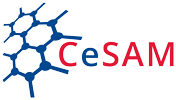New projects
ALERT (H2020 MSCA-COFUND-DP)
ALERT is an innovative doctoral program co-funded by the European Union that aims on the development of novel tailor-made antimicrobials and delivery strategies, from synthesis towards clinical applications. Under the supervision of top scientists in different fields and sectors related to antimicrobial research, 19 PhDs will conduct research within four main areas:
- Chemical synthesis of antimicrobials
- Biotechnological production of antimicrobials
- Nanotechnology approaches to create antimicrobials
- In vivo testing
The University and University Medical Centre Groningen together with the European Union invest nearly €8 million to recruit and train 19 PhD students. Coordinator of the program is Andreas Herrmann and leading scientists are: Oscar Kuipers, Arnold Driessen, Roel Bovenberg, Matthias Heinemann, Bert Poolman, Ben Feringa, Adri Minnaard, Anna Hirsch, Wim Quax, Alex Dömling, Anna Salvati, Erik Frijlink, Yijin Ren, Jan Maarten van Dijl, Alex Friedrich, Henk Busscher, Patrick van Rijn, Jelmer Sjollema, Bart Crielaard. For more detailed information see: http://www.novelantimicrobials.eu
PRONKJEWAIL (H2020 MSCA-COFUND-DP)
The Microbes in Health and Disease research program at the University Medical Center Groningen has been co-funded by the European Union to establish the doctoral program PRONKJEWAIL (‘a real gem’) that concentrates on the field of hospital care and infection. The specific objective is protecting patients with enhanced susceptibility to infections. The University and University Medical Centre Groningen together with the European Union invest €5 million to recruit and train 16 PhD students. Coordinator of the program is Ymke Stienstra and leading scientists a.o. are: Alex Friedrich and Jan Maarten van Dijl.
RAFTS4BIOTECH (H2020 LEIT-NMBP instrument)
The consortium aims to exploit lipid rafts to produce valuable compounds and to convert pollutants. In view of CeSAM, Oscar Kuiper’s contribution is to investigate the use of recently identified the lipid rafts in bacterial cells as confined spaces to produce and export antimicrobials, while avoiding intracellular toxicity. Nisin serves as model to the production of new highly potent antimicrobial lantipeptides. The Molecular Genetics group receives nearly €1 million to appoint researchers and for execution of the experiments.
COMBINATORIALS (H2020 JPI-AMR)
The consortium, in which Jan Willem Veening is a leading PI, aims to develop Novel drugs and drug combinations against bacterial growth, survival and persistence; from high-throughput screening to mechanism of action. Acomprehensive and powerful strategy is pursued to repurpose or improve FDA-approved drugs including neglected/disused antibiotics, and identify combinations to re-sensitize resistant/tolerant bacteria. Thousands of pairwise drug combinations will be tested on bacterial growth, viability and bacterial persistence in three clinically relevant pathogens: uropathogenic Escherichia coli, Staphylococcus aureus, and Streptococcus pneumoniae implicated in both acute and chronic infections, including pneumonia, pyelonephritis, bacteremia and endocarditis.
For more detailed information see: http://www.novelantimicrobials.eu
HEALTH-I-CARE (INTERREG DE-NL)
The cross border and inter-sectorial Health-I-Care innovations project, coordinated by Alex Friedrich, addresses safer healthcare by focusing on better hygienic standards to prevent and combat hospital infections and antimicrobial resistance. The involved public and private stakeholders have defined to work on about 30 relevant innovative products and technologies in different fields, a.o. diagnostics, therapy, stewardship, awareness, and persuasive communication. The project (~k€715) is funded for 50% via Interreg funds of the European Union. For more detailed information see: http://www.health-i-care.eu
EURHEALTH-1HEALTH (INTERREG DE-NL)
The cross border and inter-sectorial Eurhealth-1Health project, coordinated by Alex Friedrich, focus on prevention of infections caused by pertinent resistant microorganisms and antimicrobial resistance in humans and animals, both adding to the reduction of the associated health risks. During the project Dutch and German health care and knowledge institutions from 4 so-called Euregions intensively collaborate to even further improve the current high quality of infection-related health care. The project (~k€500) is funded for 50% via Interreg funds of the European Union.
